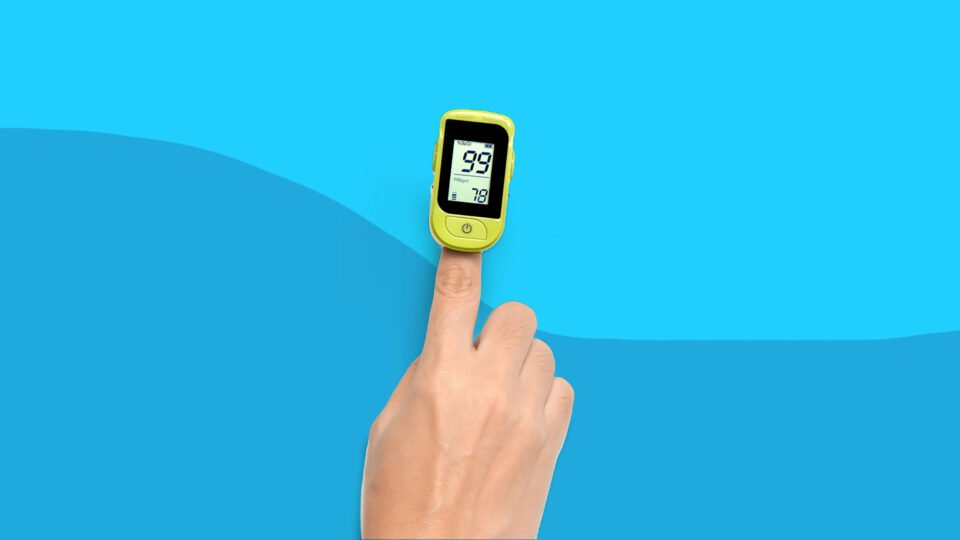The “Remote Patient Monitoring Market – Global Outlook & Forecast 2022-2027″ report has been added to ResearchAndMarkets.com’s offering.
In-depth Analysis and Data-driven Insights on the Impact of COVID-19 Included in this Global Remote Patient Monitoring Market Report
The global remote patient monitoring market to grow at a CAGR of 12.5% during 2021-2027.
Remote patient monitoring is achieved by using digital technologies to monitor and capture medical health-related data from patients and electronically transmit the information to healthcare providers for assessment, and, when necessary, recommendations and instructions are provided.
RPM reduces the number of readmissions in the medical requirement, hospitalizations, and duration of stay in the hospital, which leads to improved quality of life and contain costs.
In August 2020, Stasis Labs introduced a mobile-connected remote patient monitoring technology in hospitals and outpatient settings in the US. The company’s Stasis system monitors important vital parameters in its functioning.
In July 2020, Philips and BioIntelliSense teamed together to improve remote patient monitoring systems for at-risk patients from the hospital to their homes. Philips has added the BioIntelliSense sensor to the device for remotely usage.
Market Segments
The Devices and Software segment accounted for the largest share in the global remote patient monitoring market. With the emergence of connected cardiac implants, cardiology was one of the first specialties to incorporate RPM.
Cardiology practices are now particularly well-positioned to gain the short and long-term benefits associated with the progression of RPM services, technology, and regulation. The cardiac monitoring market is further propelled by innovative product characteristics, as well as the increased need and demand for virtual care solutions in the COVID-19 era.
The cardiac monitor segment accounted for the maximum share in the remote patient monitoring market. For instance, according to CDC, 30.3 million US adults were identified with heart disorders in 2018. Thus, the high prevalence of cardiac disorder is expected to drive the segment.
Geographic Overview
North America accounted for a significant 40% of the global market for remote patient monitoring market share in 2021. The presence of substantial competitors and their growth strategies are the main factors driving the North American market.
The industry is driven by rising healthcare spending and increased awareness about the benefits of sickness prevention. An increase in heart ailments, sedentary lifestyles, and the deployment of e-health in some rural areas of North America is expected to drive the market growth.
Competitive Landscape
With many top companies in the global market and several small players in regional markets, the global remote patient monitoring market is somewhat fragmented.
The major competitors in the market are focusing their efforts on reducing the size of the remote patient monitoring market. These companies are also attempting to increase their market share by launching new goods and forming collaborations with other market participants. As a result, these factors are expected to propel the remote patient monitoring market growth.
Top Players
- Medtronic
- Philips Healthcare
- ResMed
Other Prominent Players
- Resideo
- Honeywell
- LST (LifeScience Technologies)
- Coforge
- Withings
- MedM
- iHealthUnifiedcare
- Qardio
- 100-Plus
- A&D
- Abbott
- AltumView Systems
- Biotronik
- Boston Scientific
- Bardy Diagnostics
- Cardiomo
- Cardiologs
- Dragerwerk AG
- Hoffmann-La Roche
- GE Healthcare
- GrandCare
- Masimo Corporation
- Medopad
- Nihon Kohden
- Omron Healthcare
- OSPLabs
- Smiths Medical
- Spacelabs
- Senseonics
- TeleMedCare
- VitalConnect
- Vitls
- Modicare
- Hillrom
- Vivify Health
- ACL Digital
- Dexcom
- iRhythm Technologies
- Vivalink
- Biobeat
- CareValidate
- Biofourmis
- CAREMINDr
- Datos Health
Key Topics Covered:
1 Research Methodology
2 Research Objectives
3 Research Process
4 Scope & Coverage
4.1 Market Definition
4.2 Base Year
4.3 Scope of the Study
5 Report Assumptions & Caveats
5.1 Key Caveats
5.2 Currency Conversion
5.3 Market Derivation
6 Market at a Glance
7 Introduction
7.1 Overview
7.1.1 Covid-19 Impact on Remote Patient Monitoring Market
8 Market Opportunities & Trends
8.1 Increasing Role of IoT in Remote Monitoring & Healthcare Applications
8.2 Paradigm Shift Toward Home-Based Healthcare Devices
8.3 Telemedicine Ushering New Opportunities in Remote Monitoring
9 Market Growth Enablers
9.1 Aging Population Vulnerable to Chronic Diseases
9.2 Rising Wearable Medical Technology Innovations
9.3 Growing Use of Rpm to Proactively Monitor & Improve Patient Engagement
9.4 Increased Demand for Remote Monitoring Due to Covid-19
10 Market Growth Restraints
10.1 Low Awareness of Remote Monitoring in Developing Countries
10.2 Lack of Data Accuracy
11 Market Landscape
11.1 Market Overview
11.2 Market Size & Forecast
11.3 Five Forces Analysis
12 Component
12.1 Market Snapshot & Growth Engine
13 Devices & Software
13.1 Market Snapshot & Growth Engine
13.2 Market Overview
13.3 Cardiac Monitoring Devices
13.4 Electrocardiographs (Ecgs)
13.5 Cardiac Monitors
13.6 Blood Pressure Monitors
13.7 Other Cardiac Monitoring Devices
13.8 Respiratory Monitoring Devices
13.9 Apnea Monitors
13.10 Pulse Oximeters
13.11 Other Respiratory Monitoring Devices
13.12 Blood Glucose Monitors
13.13 Fetal & Neonatal Monitoring Devices
13.14 Other Rpm Devices
13.15 Services
14 Application
14.1 Market Snapshot & Growth Engine
14.2 Market Overview
14.3 Cardiology
14.4 Pulmonology
14.5 Endocrinology
15 End-User
15.1 Market Snapshot & Growth Engine
15.2 Market Overview
15.3 Hospitals & Specialty Clinics
15.4 Homecare Settings
15.5 Ambulatory Surgical Centers
15.6 Long-Term & Acute Care Centers
16 Geography
16.1 Market Snapshot & Growth Engine
16.2 Geographic Overview
For more such updates and perspectives around Digital Innovation, IoT, Data Infrastructure, AI & Cybersecurity, go to AI-Techpark.com.

